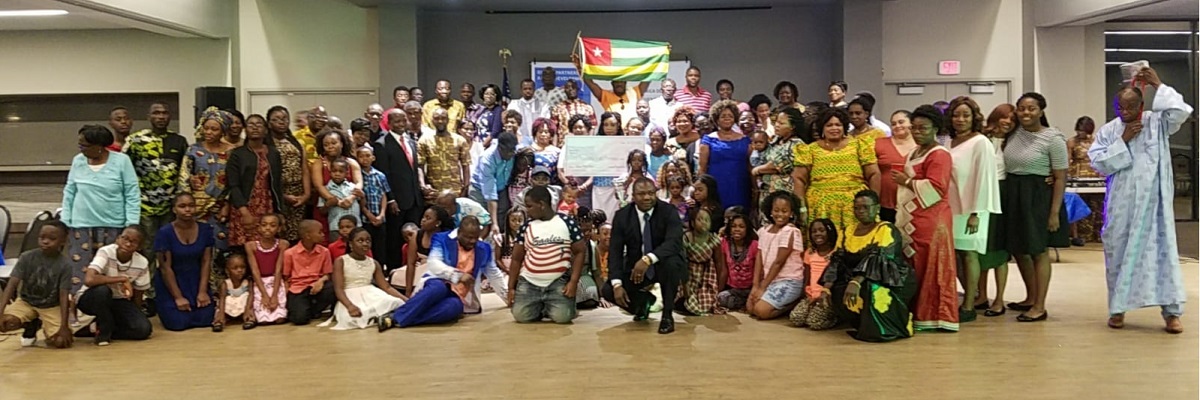
CHILD EDUCATION DOES MATTER…..
Cultivating the mind of a child is more important than anything one can do to prepare him or her for a successful professional life. At Global Partners for Africa Development (GLOBALPAD), we understand that the whirlwind of innovation and technology changes our lives so quickly that there is no way to anticipate how the future will look. Life and everything that surrounds it may look different a decade or two from now. That’s why we have come to the realization that the only way to get African children ready for what comes next is to create in them the mental infrastructure to thrive in any environment. It is no news to anybody that education in Africa faces daunting challenges for lack of adequate funding and limited resources. The enormous obstacles children are facing make their future uncertain. Many of them walk miles to go to school; they lack basic supplies such as pen and pencil.
 |
 |
Some of them (especially AIDS orphans) go all day without food. Some of the classrooms are huts built with straws that can barely pass the stress test of bad weather. Global PAD is working with some communities to help them take these challenges head on, and also collaborating with other NGO’s, church groups and local authorities in some countries to help solve the problems. Ameliorating these conditions and cultivating young minds to anticipate and to meet the challenges that may come their way generations later is our business. A number of programs are undertaken to reach our goal.
 |
 |
||
GENDER EQUALITY & GIRLS EDUCATION….
Enrollment rates among primary-school-aged girls is 8 percent lower than that of boys, according to Unicef. And of those girls who do enroll, 9 percent more of them drop out before the end of the sixth grade than boys. In Africa, poverty, tradition and ignorance deprive an estimated 24 million girls of an elementary school education, and for those who are able to attend, the lack of proper school sanitation facilities causes them to drop out by puberty. The issue of gender inequality and lack of education plays a pivotal role in the choices many girls make as they grow into adulthood.
Today women:
– Make up two-thirds of the Africa’s illiterate population
– Comprise two-thirds of the exploited informal workforce
– Own one per cent of the world’s resources and earn one-tenth of the world’s income
– Occupy only 8% of seats in the Africa’s parliaments
– 80% of Africa’s refugees are women and girls (UNHCR 2002)
– For women aged 15-44 gender violence accounts for more deaths and disability than cancer, malaria, traffic accidents and war (WHO 2005)
Yet women are the powerhouses of developing African countries: they produce most of the food, make up a third of the official labor force and care for families and homes. The idea then is that helping African women, helps lift whole families out of poverty
THE SOLUTION……
GlobalPad for Africa Development see’s itself at the forefront of helping improve girls enrollment in village and local schools in Africa. Girls who are educated are less likely to become pregnant themselves and or contract aids. They are also more likely to have healthier and smaller families and earn more income. Our goal is to setup community-led workshops, partnering with village elders to educate families about the advantages of sending both boys and girls to school.






